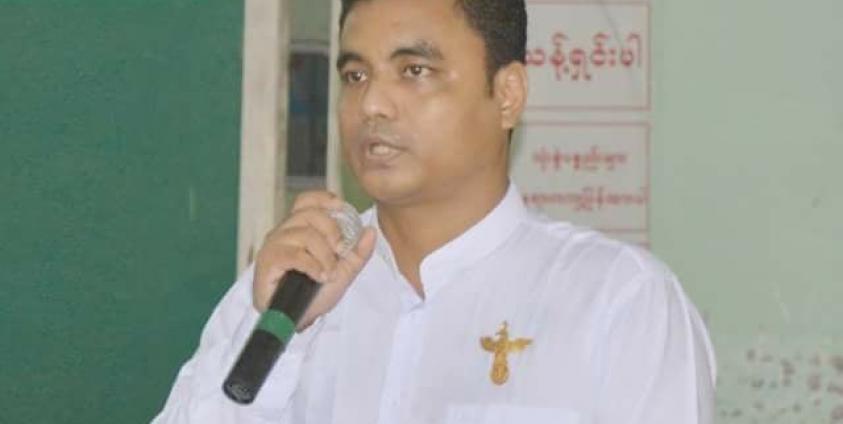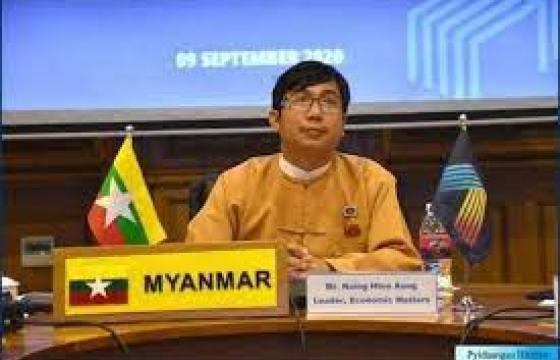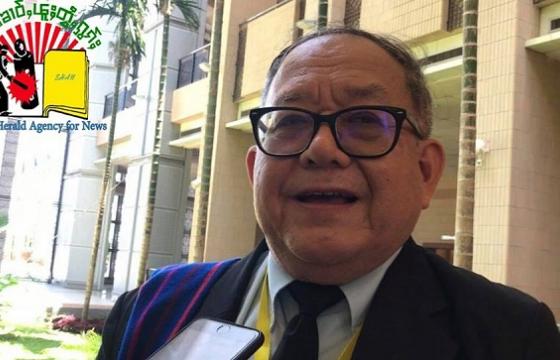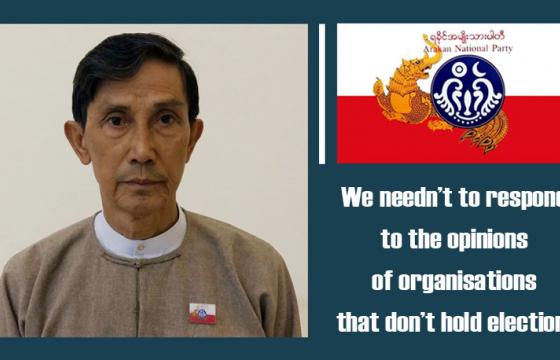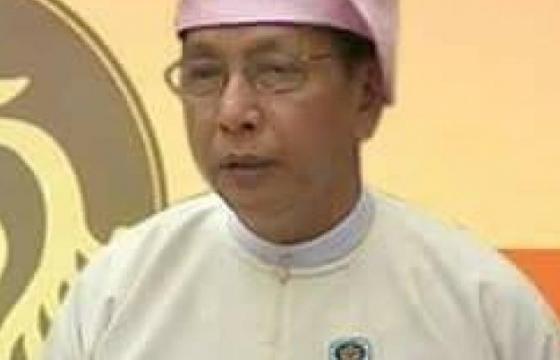Colonel Min Tun, commander-in-chief of the Arakan Army, a central executive committee member of the Arakan National Council and a member of the Delegation for Political Negotiation (DPN), was not pleased by the Tatmadaw chief’s opening speech at the recent Union Peace Conference. During the first day welcome addresses, Senior General Min Aung Hlaing criticized ethnic armed groups for making requests at previous talks that extend far beyond the right to self-determination and veer into territory that could undermine the Union.
The Arakan Army is a member of the ethnic umbrella organization the United Nationalities Federal Council (UNFC), and is also one of the groups involved in the Northern Alliance, a bloc engaged in ongoing fighting with the Tatmadaw. The AA has not signed the nationwide ceasefire agreement (NCA).
The Kantarawaddy Times met with Col Min Tun to get his views on the peace process and the recent 21st-Century Panglong Conference. This interview has been edited for length and clarity.
Q: What are the main difficulties for the UNFC in discussing peace with the government?
A: The NCA that was signed by the government and eight ethnic armed organizations is only in the draft stage. It is not at a final stage where it has gained the approval of all EAOs.
The Tatmadaw will not allow it to be amended. This is an obstacle. The Tatmadaw is preventing solutions by blocking joint agreements or supplements. From the ethnic people’s perspective, the Tatmadaw’s commitment to building peace and the future federal Union is questionable as there are still limitations regarding inclusivity, and on-the-ground military offensives have not been halted.
Q: Peace talks have been ongoing since U Thein Sein’s administration. What developments and differences have you noticed in the discussions since the civilian government under Daw Aung San Suu Kyi took office?
A: I feel that the Tatmadaw is less cooperative with the [National League for Democracy-led] government. In the past, the USDP [Union Solidarity and Development Party] government had the authority to make decisions. But now any requests or submissions have to be sent to both the state counsellor and to the Tatmadaw’s commander-in-chief. Although discussions have become more flexible and positive, the government needs to consult with the Burma Army before making a final decision. I feel that on the ground clashes increase sometimes when there are disagreements between the government and the Tatmadaw.
Q: Please give us your opinion about the first and second sessions of the Union Peace Conference, also called the 21st-Century Panglong Conference.
A: The most notable difference [between the sessions] is that the Northern Alliance attended the second conference even though it has stated that it will not follow the NCA path. By contrast, the UNFC, which is searching for ways to follow the NCA path, did not attend the conference. The attendance of the Northern Alliance may be seen as a victory for the government, but I’m not satisfied with this interpretation because the government didn’t really want to invite [the Northern Alliance] and the Northern Alliance didn’t really want to attend it. Genuine national reconciliation and internal peace will remain out of reach in this situation.
We understood the Panglong conference as a venue for discussions aimed at trying to establish a federal democratic Union. [This Union] will supersede the constitutions enacted in 1947, 1974 and 2008. This conferences are needed in order to negotiate and find solutions that genuinely, intimately and honesty address what has happened in the past, why it happened and how to prevent similar conflicts from happening again.
When we talk about Panglong, there are only two principles at its essence. The first is unity under the principle of equality. The other is the right of secession if things do not work out when ethnic people are living together. Our ethnic leaders have called for the building of a Union based on the rights of national equality and self-determination in line with the Panglong Agreement. But the military essentially staged a coup by conflating federalism with secession.
Instead of finding ways to guarantee the Panglong Agreement, in spirit and principle, the Burmese leaders are still issuing political sermons and warnings about non-secession from the Union. Such acts taint the essence of Panglong Agreement. The ethnic people attend these conferences to discuss the Union issue on equal terms and with the intention of finding solutions. They didn’t come to be scolded by Burmese leaders or to listen to their sermons.
Q: What was the UNFC’s view about the Northern Alliance attending the conference?
A: The Northern Alliance stated that they didn’t want to attend if they were not given equal rights and were not allowed to participate in discussions freely. [The alliance] only attended [the second session] because of pressure from China. The [government negotiators] also said they only invited [the Northern Alliance] at China’s behest. It’s good that the neighboring countries assist in supporting internal peace, but it’s not good for anyone if they pressure and interfere in a way that infringes on a country’s dignity. The mediating country has violated customs and traditions for international relations and the two sides [the government and the Northern Alliance] have lost face among the world because another country has had to mediate between them.
Q: How will the UNFC proceed in the peace process?
A: The UNFC has submitted a separate proposal noting points in the NCA that it finds unsatisfactory. We will find a way to work within the parameters of the NCA if [the government] can agree [with these points] and accepts the proposal. [If that happens] we will sign a deed of commitment concerning peace and political processes. Then, we will move on to signing the NCA. If the Northern Alliance decides to follow the path outlined by the amended NCA, we will connect with [the UNFC] and work together with them. But we can’t say this is definite.
Q: How do you think the resignation of some of the UNFC members will affect the UNFC and the peace process?
[*Editor’s note: The Kachin Independence Army and the Wa National Army submitted resignation notices to the UNFC in April and May respectively. The UNFC has said it will consider the resignations at a June meeting.]
A: The KIO and the WNO have only submitted resignation letters. We will decide on whether to accept their resignations at the upcoming conference. [Their resignation] isn’t because they don’t accept the UNFC’s principles, but because they want to find a new path to peace in cooperation with other groups that are geographically closer to them due to slow developments in negotiating the nine-point proposal [regarding signing the NCA].
Q: One of the most contentious issues discussed at the Union Peace Conference was the issue of having a single armed force for the federal Union. What is the UNFC’s view on this issue?
A: There’s no need to argue much on the issue of having a single army. What we need to negotiate is what kind of single army we will have. The federal Union army that we can accept must not harm human security. It must be under the control of a civilian government that has been elected democratically. The Union army needs to be comprised of all state armies. The state governments must also have the right to form their own armies and police. The military must not be under the influence of the police and intelligence forces that have been established for rule of law and public security.
Q: Do you want to add anything else?
A: It is time for us to negotiate [for peace] with unity in order to have something good come from something bad instead of wasting time criticizing and arguing with each other.
Translated by Thida Linn
Edited by Laignee Barron

